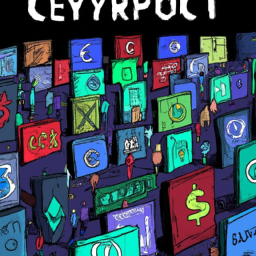South Korea has emerged as one of the leading countries in the global cryptocurrency market, with a vibrant crypto community and a tech-savvy population. As the adoption of cryptocurrencies continues to grow, so does the need for effective marketing strategies to promote crypto projects and educate the masses about the benefits and potential risks associated with this emerging asset class. In this article, we will delve into the world of crypto marketing in South Korea, exploring the top strategies employed by industry players and the latest trends shaping the landscape.
1. Understanding the South Korean Crypto Market:
Before diving into the marketing strategies, it is crucial to grasp the unique characteristics of the South Korean crypto market. South Korea has a high smartphone penetration rate, making mobile marketing a key channel for reaching potential investors. Additionally, the country has a strong gaming culture, which has fueled the popularity of blockchain-based games and virtual assets. Understanding these dynamics is essential for crafting successful marketing campaigns.
2. Influencer Marketing:
Influencer marketing has become a powerful tool in the crypto industry, and South Korea is no exception. Crypto influencers, known as “Key Opinion Leaders” (KOLs), play a significant role in shaping public opinion and driving adoption. These influencers often have large followings on social media platforms like YouTube, Twitter, and Instagram. Collaborating with KOLs can help crypto projects gain exposure, credibility, and trust among the South Korean audience.
3. Community Building:
Building a strong and engaged community is crucial for the success of any crypto project. South Korean crypto marketing strategies often focus on creating and nurturing communities through social media groups, forums, and dedicated online channels. These communities serve as platforms for sharing news, updates, and fostering discussions, creating a sense of belonging and loyalty among community members.
4. Localized Content Creation:
To effectively engage with the South Korean audience, crypto marketing campaigns need to be tailored to the local culture and language. Localized content creation, including articles, videos, and infographics, helps bridge the language barrier and ensures that the message resonates with the target audience. Collaborating with local content creators and translators is essential to deliver accurate and culturally relevant information.
5. Partnerships with Traditional Financial Institutions:
In recent years, South Korean crypto projects have started forming partnerships with traditional financial institutions, such as banks and payment processors. These collaborations help build trust and credibility among the general public, as traditional institutions are seen as more reliable and secure. Joint marketing efforts, such as co-branded campaigns and events, can effectively reach a wider audience and promote the benefits of cryptocurrencies.
6. Regulatory Compliance and Education:
South Korea has implemented strict regulations in the crypto space to protect investors and prevent illegal activities. Crypto marketing campaigns must adhere to these regulations and ensure compliance. Moreover, educating the public about the risks and benefits of cryptocurrencies is crucial for fostering a responsible investment culture. Marketing strategies often include educational content, webinars, and workshops to raise awareness and promote informed decision-making.
7. Gamification and Rewards Programs:
Given South Korea’s gaming culture, integrating gamification elements into crypto marketing campaigns has proven to be highly effective. Crypto projects often launch games, quizzes, or competitions where participants can earn rewards in the form of tokens or virtual assets. These initiatives not only drive engagement but also provide an opportunity for users to experience the benefits of cryptocurrencies firsthand.
8. Leveraging Blockchain Technology:
Crypto marketing campaigns can leverage the transparency and immutability of blockchain technology to build trust and credibility. By showcasing how blockchain technology can revolutionize various industries, such as finance, supply chain, or healthcare, marketers can highlight the potential long-term value of cryptocurrencies. Demonstrating real-world use cases and success stories can help dispel misconceptions and attract more investors.
Conclusion:
South Korea’s crypto marketing landscape is evolving rapidly, driven by the country’s tech-savvy population and growing interest in cryptocurrencies. Successful marketing strategies in South Korea often involve influencer collaborations, community building, localized content creation, partnerships with traditional financial institutions, regulatory compliance, education, gamification, and leveraging blockchain technology. As the crypto market continues to mature, staying abreast of the latest trends and adapting marketing strategies accordingly will be crucial for success in South Korea and beyond.
South Korea Crypto Market Updates 2024-2025
South Korea’s crypto market exploded in 2024 when Korean Won trading volume surpassed USD globally, with the July VAUPA implementation creating the world’s most regulated crypto environment. Korean traders remain altcoin maximalists, with 80% of trading volume focused on non-Bitcoin cryptocurrencies. For comprehensive details about our specialized South Korea crypto marketing services and current market strategies, visit our dedicated South Korea crypto marketing services page.


